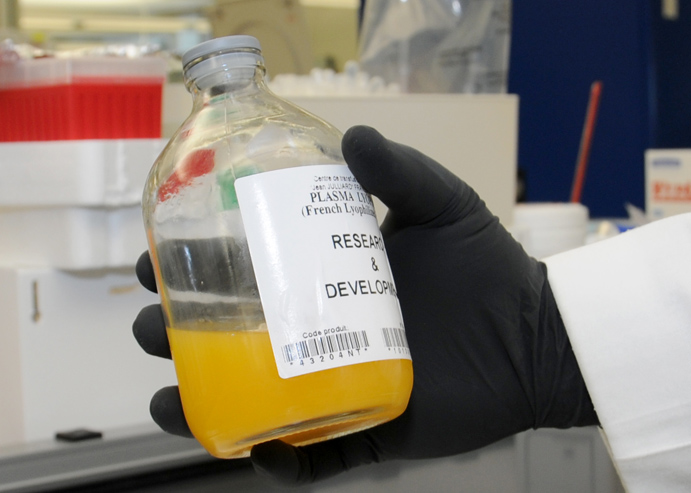U.S., France Armies Join Forces to Expand Freeze-Dried Plasma

Since 2012, U.S. Army Special Forces medics have had limited quantities of freeze-dried plasma available for use in remote locations through a Food and Drug Administration Expanded Access Investigational New Drug protocol. The limited amount could soon change and more U.S. military members could have access to FDP made available through an agreement between the U.S. and French Armies.
"The Army Blood Program, the Armed Services Blood Program Office, the U.S. Army Medical Research and Materiel Command, the U.S. Army Institute of Surgical Research and the French army are working on expanding this program," USAISR Chief of Blood Research Lt. Col. Andrew P. Cap, Ph.D., said. "The expansion would be through a joint manufacturing agreement in which FDA-approved plasma collected in the U.S. by the military would be sent to France and manufactured into the freeze-dried plasma product for use by a greater number of U.S. Armed Forces."
A pilot project was successfully completed in early 2014 to test the possibility of the U.S./France joint manufacturing program. According to Cap, "the product met all standard quality control tests."
The Army currently receives about 200 units per year from the French Military Medical Service. The FDP is officially called French Lyophilized Plasma and has been used to successfully resuscitate critically injured U.S. Special Forces combat casualties. FLyP is a universal product that is compatible with any blood type.
The U.S. military used FDP during WWII, but due to blood-borne infections like hepatitis, the program was suspended. Now made safe due to infectious disease testing, FDP contains blood coagulation factors, which help injured soldiers form blood clots that stop bleeding. Medics can administer the product on the battlefield within minutes and save lives.
"The French military has been making this product, basically since the 1940s, with technology they got from the U.S. military and have since modified and improved it. We are now bringing it home," Cap said.
 An official website of the United States government
An official website of the United States government
 ) or https:// means you've safely connected to the .mil website. Share sensitive information only on official, secure websites.
) or https:// means you've safely connected to the .mil website. Share sensitive information only on official, secure websites.


